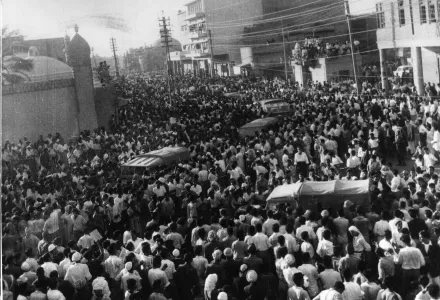
Abstract
Why were American officials caught by surprise with the military coup and later revolution in Iraq on 14 July 1958? Drawing on American intelligence and diplomatic records as well as multilingual sources, this article argues that the US intelligence failure is the product of two factors: the collection of information from too few and too similar human sources of intelligence in Iraq's ruling regime, and the unreceptivity of US officials to assessing new information and their unwillingness to update assessments of local Iraqi developments. It revisits America's intelligence failure in Iraq and suggests important lessons for the study of intelligence.
This author won the Christopher Andrew–Michael Handel Prize for this article.
Karam, Jeffrey G. "Missing Revolution: The American Intelligence Failure in Iraq, 1958." Intelligence and National Security, vol. 32. no. 6. (October 2017): pp. 693–709.
The full text of this publication is available via Intelligence and National Security.





